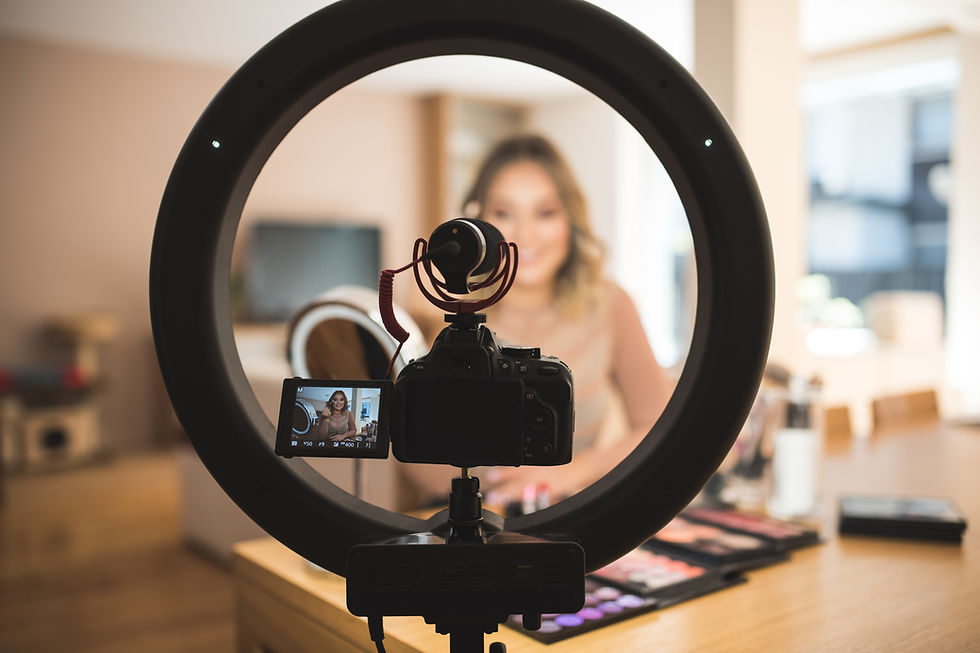Social media and young people
- harmonycounselling4
- Jun 17
- 3 min read

In today's hyper-connected world, social media is a constant presence in the lives of teenagers. From Instagram reels to Snapchat streaks, it offers both a platform for connection and a battleground for self-worth. As a person-centred counsellor, I often sit with young people who feel overwhelmed by the pressures of online life. Through this lens, I want to explore what it really means to be a teenager in the age of social media — and how we can meet them with empathy, presence, and unconditional positive regard.
The Social Mirror
Teenagers are in a formative stage of developing identity and self-concept. According to Carl Rogers, the founder of person-centred therapy, our self-worth emerges from the conditions of worth we perceive from others. On social media, these conditions can become painfully clear — likes, comments, followers, curated aesthetics, and viral trends all contribute to a teenager's internal sense of "Am I enough?"
From a person-centred view, it is not our role to judge their experience, but to understand it from their frame of reference. When a teenager says, “No one likes my post — I feel invisible,” it is essential we hear the deeper truth behind the words: a yearning to be seen and valued for who they are.
Authenticity in a Curated World
Rogers believed that when people experience genuineness and acceptance, they move towards growth and authenticity. Yet social media often promotes a polished, filtered version of reality. Young people may struggle to reconcile the difference between their real selves and their “online” selves. This split can lead to anxiety, low self-esteem, and emotional disconnection.
In counselling, offering a space where they don’t have to perform — where they can express vulnerability without fear of judgement — becomes a radical act. We help them reconnect with their own inner experience, their actual feelings, and their personal truth, even if it doesn’t match the highlight reel of their feed.
The Need for Connection
Social media is often blamed for isolation, but for many young people, it’s also a lifeline. Especially for those who feel marginalised or different — whether because of sexuality, neurodivergence, mental health, or cultural background — online communities can offer belonging that may not exist offline.
Person-centred counselling honours this need for connection. Rather than dismissing their digital worlds, we explore them with curiosity: What does this space mean to you? Who do you feel understood by online? What helps you feel safe? In doing so, we validate their reality and nurture their capacity to make meaning of their own experience.
Being With, Not Doing To
Perhaps most importantly, the person-centred approach invites us to be with teenagers, not do to them. It’s tempting for adults to offer solutions: "Just take a break from your phone," "Don’t worry about what others think," or "You’re overreacting." But these responses often miss the mark.
Instead, we sit beside their pain. We offer understanding, trusting that within each young person is a self-actualising tendency — a natural movement towards growth, resilience, and wholeness. Our role is not to fix, but to hold space for this unfolding.
Final Thoughts
Young persons are not just digital natives — they are emotional pioneers, navigating uncharted territory where identity, connection, and validation are intertwined with technology. As person-centred counsellors, we offer a grounded, non-judgemental relationship in which they can explore themselves honestly and safely.
In a world that often tells them who they should be, our presence says: You are enough, just as you are.
If you're a parent, educator, or fellow counsellor, and you're concerned about a teenager's relationship with social media, consider the power of simply listening without judgement. Sometimes, being heard is the first step to healing.


Comentarios